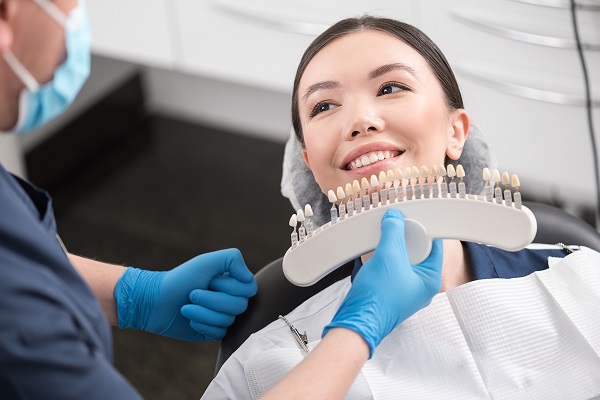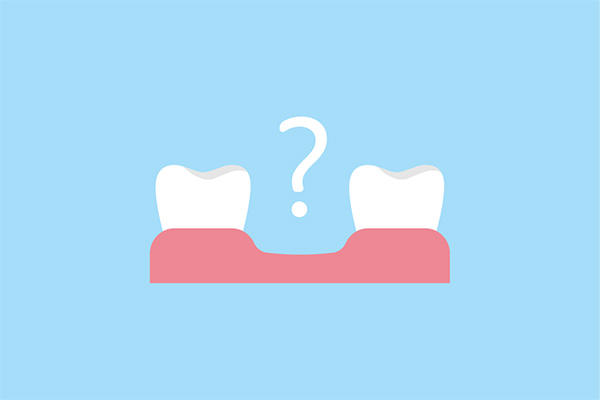How to Take Care of Dental Veneers

A skilled dentist can install dental veneers that last for decades. That is only half of the equation, however. The other half is excellent care of the restoration on the part of the patient.
Taking care of dental veneers makes a lot of sense, seeing that a person invests their time, energy and money in their smile. That is why a cosmetic dentist will always give useful tips that help their patients to prolong the life of their veneers.
The different types of dental veneers
Composite veneers are affordable and convenient, in that a cosmetic dentist will sculpt, cure and install such veneers in a single procedure. Many patients prefer a quick fix that creates a nice smile after a single session in the dentist’s chair. That said, composite veneers have a few drawbacks.
Compared to other dental materials, composite is vulnerable to staining. Composite veneers are also less sturdy, which translates into a shorter lifespan. It bears mentioning that composite veneers will last 10 years or more.
Porcelain veneers are tougher and more durable than composite resin. As materials go, porcelain mimics the sheen, translucency and feel of natural teeth. This type of veneer is also more stain resistant. For these reasons, cosmetic dentists will generally recommend porcelain as a first choice. There are many types of porcelain veneers and a cosmetic dentist will walk their patients through the benefits and downsides of each one.
The dentist will also advise their patient on the best way to take care of their brand new veneers, starting with:
Oral hygiene and oral health
A dental veneer is only as healthy as the mouth it sits in. A person who observes good oral habits ensures the health of their mouth, their teeth and the veneers that sit on said teeth. By observing good nutrition and good oral hygiene, a person who wears veneers ensures that:
- Their teeth remain strong and healthy enough to anchor a set of veneers
- The veneers retain their pearly-white color because even porcelain veneers can develop stains
Preventing stains
No amount of brushing and flossing can counter constant exposure to cigarette smoke, coffee, red wine and other heavily colored substances. As such, a person who has veneers in their mouth should avoid food and drink that could discolor their veneers.
Protecting dental veneers from damage
Dental restorations are tough and durable, but not indestructible. This should always inform how an individual treats their veneers. Here is how to keep veneers intact and in place:
- A person who grinds their teeth should invest in a mouthguard and stress relief measures
- A mouthguard is also a good idea during sports
- The wearer of dental veneers should stay away from chewy or sticky foods that could loosen their veneers
- They should also use toothpaste that will not dissolve the adhesive that bonds the veneer and the tooth
- The person should avoid hard foods that could break or fracture their veneers
By observing a few simple rules, a patient can ensure that their veneers last at least a decade. With excellent care, dental veneers can last even a lifetime, giving a good return on investment.
Protect your investment in your smile
If you need even more information on caring for your dental veneers, call our offices and schedule an appointment. Our dentist will provide the care that your teeth need.
Request an appointment here: https://www.smilebeautification.com or call Rolando Cibischino D.M.D. at (201) 204-1355 for an appointment in our Hackensack office.
Check out what others are saying about our services on Yelp: Read our Yelp reviews.
Recent Posts
There are many options for replacing missing teeth, but how can replacing missing teeth help your oral health? Replacing missing teeth is the best way to prevent tooth decay, gum disease, and jawbone deterioration. Options for replacing missing teeth are dental implants, dentures, or dental bridges. Choosing which option will work best for you depends…
Nobody wants to be searching for options for replacing missing teeth, but it’s good to be prepared just in case. Not only is a missing tooth an eyesore, but there is usually an underlying reason behind it. Mouth diseases such as gingivitis or accidents are generally the most likely culprits for losing a tooth. No…
Looking for information on preventive dentistry? Read on to learn more. A good preventive dentist can save you money on significant tooth problems, pain, and costly treatments in the future. All treatments or procedures that prevent tooth decay, tooth damage, and gum disease fall under preventive dentistry. Fortunately, when preventive dentistry is incorporated into daily…
Dental implants are a newer option for replacing missing teeth. They involve a titanium screw inserted into the jawbone, and then months later, once the jawbone has healed and the screw is fused into the bone, a crown is attached to the screw.It can be expensive to get dental implants, but since they offer full…


